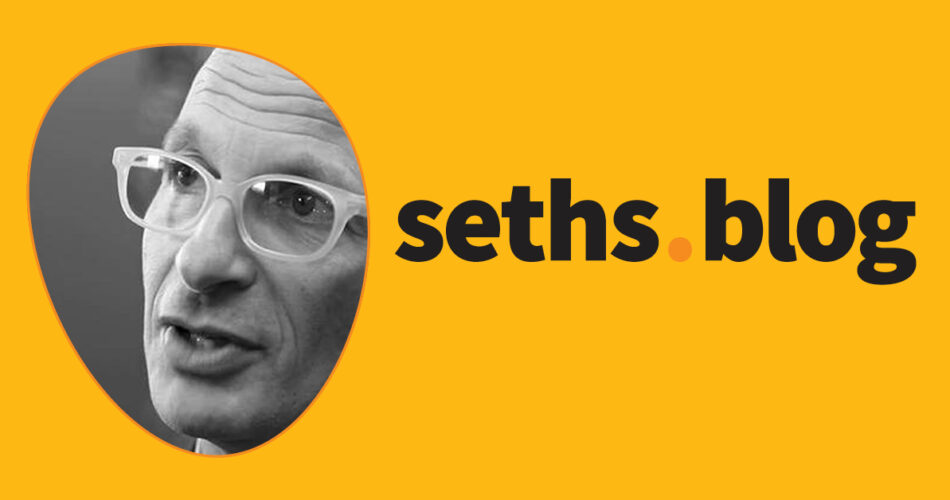When Google or Facebook or Spotify decide what you’ll see next, they’re making a choice.
That’s very different from an open platform like “podcasting” or “blogging” (in quotes with no capital letters, because no one is in charge.)
Being in charge implies that choices are being made. And people who are in charge–even if it’s just one person in charge of their own voice–are choosing.
Choosing is a form of selection, of amplification and of curation. Not official government censorship, but something more nuanced than that, the responsibility that comes from choice.
In many parts of our culture, particularly pockets of tech, it’s fashionable to talk about ‘free speech’ and ‘open platforms’ as if they’re unalloyed virtues. But the moment Apple puts a podcast on its home page, Google decides to put this blog in your promo folder, or Spotify decides to promote one song or podcast over another, the platform is no longer truly open. Often, individuals and organizations use terms like this when they’re defending something that isn’t helpful to the people who encountered it.
When money enters the picture, it’s even more complicated. There’s a difference between a truly open platform and an algorithm staffed by people who put one sort of website on their spam list and another highly ranked, simply because they make more of a profit on the second one. Or when YouTube or Spotify pay people a thousand (or two hundred million) dollars to host their content…
Ideas shared create value. Good ideas are the engine of our future. We’ve seen that when creators of ideas take responsibility for their work, it’s more likely that we all benefit.
Wide-open platforms almost always lead to chaos, negative side effects and anonymous spam. I’m in favor of choice, especially when it’s made by organizations and individuals willing to be held responsible for the choices they make.
Source link



